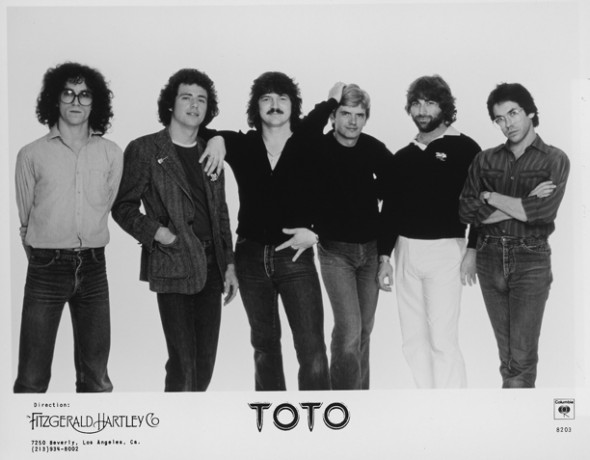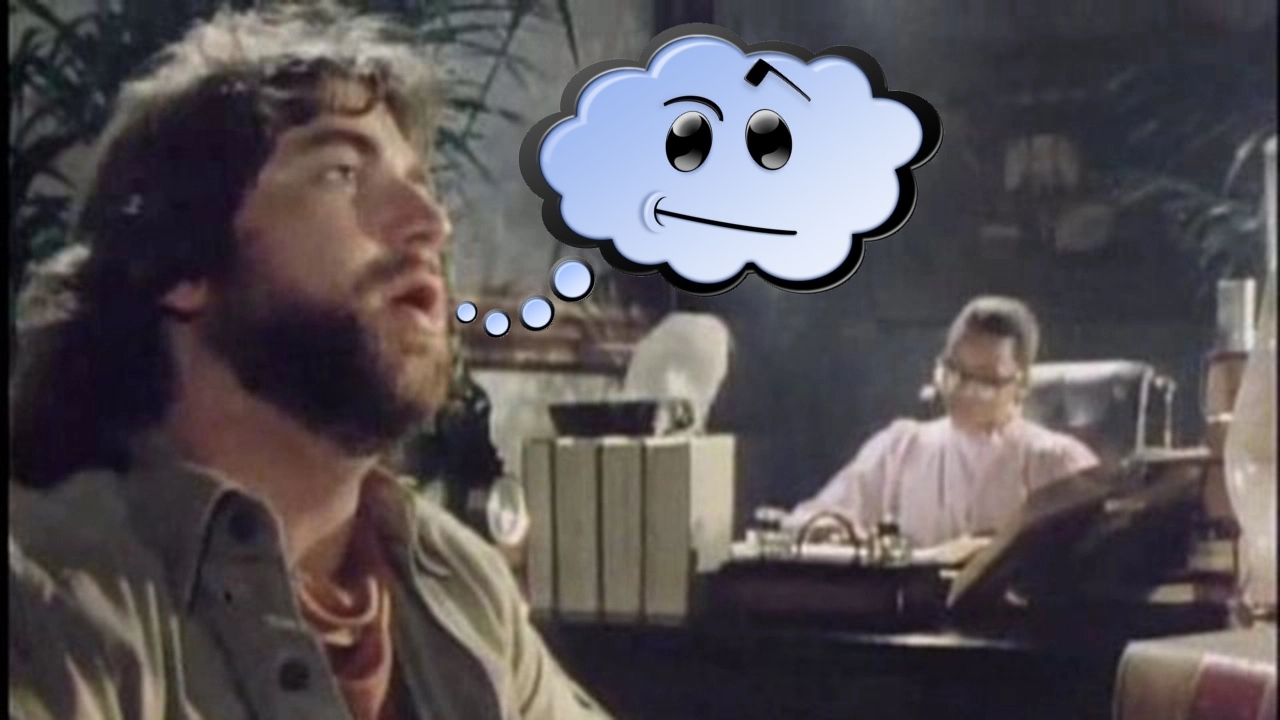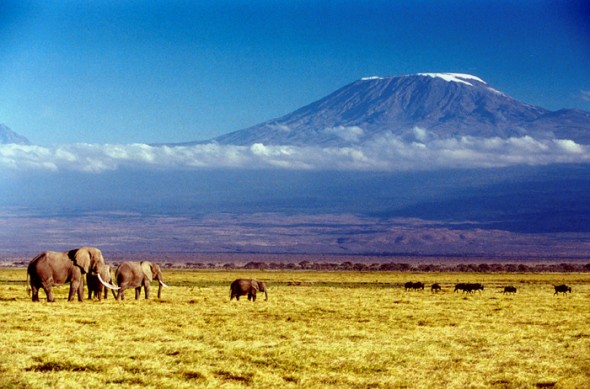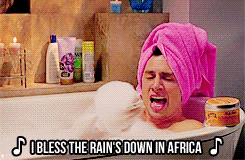 Matt Belinkie: I’m trying to pick out the most pretentious part of “Africa.” It’s probably when they magnanimously bless the rains. OH GEE THANKS TOTO.
Matt Belinkie: I’m trying to pick out the most pretentious part of “Africa.” It’s probably when they magnanimously bless the rains. OH GEE THANKS TOTO.
Amanda Jordá: HAHAHA. Yeah, I’m sure the whole continent of Africa has like a billion people more qualified to bless stuff than Toto.
Ryan Sheely: The thing is the rains actually ARE important.
Belinkie: Actually, I think the clear winner is:
I stopped an old man along the way
Hoping to find some old forgotten words or ancient melodies
He turned to me as if to say: “Hurry boy, it’s waiting there for you”
But notice, that’s not what he ACTUALLY says, is it? That’s what Toto WANTS him to say.
Sheely: Oh wow, that’s a great read. Like he actually turned to say “Dude, please let me go on about my day.” But Toto read a mystical message into it.
Belinkie: Or like, “Stop blessing the rains. It is deeply offensive to us.”
Sheely: I think for me the most pretentious line is “I know I must do what’s right, sure as Kilimanjaro rises above Olympus above the Serengeti.” In part because it pretends that is actually a singable line. I’ve sung this song enough times at karaoke to know that it is BARELY singable at best.
Belinkie: Related question. Which song gives more of a unique sense of place: “Africa” or “Down Under”?
Jordá: They both give me a sense of place, and that place is my parents’ car.
For real, though, “Down Under.” I don’t know much about the band, but they sound Australian and mention vegemite. The guys in Toto are Americans and I don’t know what exactly, other than the lyrics, is supposed to make me think of Africa.
Belinkie: They talk about how SUPER INTO AFRICA they are, but I’m not really sure they know a damn thing about the place. I feel like they spent a week at a Club Med and left only once to go on a safari in an air-conditioned bus, but they feel a great kinship with the land and its all-you-can-eat midnight buffets.
Jordá: Dude, I don’t even think they EVER went to Africa. That song sounds like a mall in New Jersey. Or an airport. I don’t hate the song, btw. I guess it might seem like it. I like it fine, but it doesn’t “feel” like Africa to me. Although now that I think about it, I can’t think of any music that does. Most actual African music I know sounds like Brazilian music to me–Northeastern Brazilian music is heavily influenced by it, so they sound very similar. Ok, I know what sounds African: Putumayo stuff, Angélique Kidjo and Ethiopian jazz.
Belinkie: Well, and Graceland obviously.
Jordá: Again, sounds totally like Brazil to me.

Windhoek, Namibia. You were all imagining, like, giraffes getting rained on out on the open veldt or some such nonsense, weren’t you? Weren’t you! (That sound that you just heard? That was me: blowing your minds.)
Fenzel: I’m pretty sure the point of Africa is that it’s imagining what a place might be like that you never went to. (It’s like that Taylor Swift music video.) The Wikipedia page characterizes it as such: Jeff Porcaro explains the idea behind the song: “a boy is trying to write a song on Africa, but since he’s never been there, he can only tell what he’s seen on TV or remembers in the past.”
Sheely: Spoiler alert: That boy is Jeff Porcaro.
Fenzel: It’s fanfiction for late-night Christian Children’s Fund commercials, where the author puts himself into the story. It only has things in it that he’s seen pictures of. David Paich said: “At the beginning of the ’80s I watched a late night documentary on TV about all the terrible death and suffering of the people in Africa. It both moved and appalled me and the pictures just wouldn’t leave my head. I tried to imagine how I’d feel about if I was there and what I’d do.”
Belinkie: The distancing in Porcaro’s explanation is simply wonderful. “It’s written from the perspective of somebody totally clueless, who doesn’t know what he’s talking about. Not me. It’s a character, obviously. Because why would I write lyrics like that otherwise?”
Jordá: To Pete’s point, is it possible to write about a place you’ve never been and how you imagine it and not sound offensive/stupid? Has anyone ever done it? ‘Cause it seems like that would always lead to some kind of [oriental]ism where you just replace the “oriental” bit with the place you’re writing about.
(Maybe my understanding of what “orientalism” means or describes is off, but it seems like something that happens to a lot of places and peoples, not just Asian countries/people. Am I totally wrong?)
Stokes: Not even a little wrong. (I wrote about this on the site a few years back.) The phenomenon that Edward Said was originally writing about is pretty narrow and specific. But I’m convinced that the broader version — the thing people usually mean when they say “Orientalism” — can happen to just about any culture.
Belinkie: In the book of Mormon, there’s an African character who sings a song about the fabled promised land of Salt Lake City. I am now almost positive that Trey Parker and Matt Stone said, “Let’s take the song “Africa” and just invert it to show how dumb it is.”
I can imagine what it must be like…this perfect, happy place:
I’ll bet the goat meat there is plentiful, and they have vitamin injections by the case
The warlords there are friendly, they help you cross the street
And there’s a Red Cross on every corner with all the flour you can eat!
Fenzel: Taking offense at Orientalism is a rather modern phenomenon that exists at the nexus of being far enough away from somebody that they consider you exotic and being accessible enough to them that when they say things you hear them and they matter to you. This isn’t to diminish the problems with Orientalism, but I think the time during which it was really common and not much frowned upon by its target audience is longer than the time during which it has been widely thought of as problematic and offensive. So Amanda, when you ask whether anyone has ever done this without sounding stupid: at the very least, people doing this in the past didn’t expect for their target audience to think they were stupid for doing it.
When we say, “Well, this person wasn’t stupid, why would they do something like this?”
The answer is probably “Well, at the time, this didn’t come off as stupid.”
Which is not so much an excuse I guess. But it might explain why a person that you respect or like for other reasons might do something that is surprisingly incompetent by modern standards. The audience dynamics inform what is acceptable. Yes, there’s racism and sexism at play, but there’s also proximity and accessibility.
I also had a narrower idea of Orientalism more as just as about people separated by geographical distance. Exoticism in general gets more complicated and more readily painful in close proximity. I’m not going to defend it line by line, but I actually really like The Song of Hiawatha and admire what it tries to do, for example. But what it tries to do isn’t really relevant in a day and age when, if you want to learn about somebody’s culture who is very different from you, no matter who they are or where, you can probably just ask them.
Belinkie: I don’t know Pete. Even at the time, the author of “Africa” felt like he had to specify it was written from the perspective of “a boy.” That suggests he’s a little defensive about how it stereotypes things.
Jordá: Ok, I just realized I was thinking of Orientalism as a way of thinking about people/a place, and you’re thinking of it as a way of making art and writing narratives about cultures you know nothing about. I mean, you need to think about the people/place in that way in order to make that art. But the art that results from it, and the way you think about and look at those things (cultures different from your own, I guess) are two separate things.
Fenzel: It’s not a coincidence, of course. You often know very little about people who are separated from you by social, economic, or political differences. Just by default.
What The Song of Hiawatha tries to do is bridge the gap with analogy. As in, I don’t really know how this story would be told in this context by these people. But to me, I have a certain relationship with this specific Finnish style of poetry that is kind of foreign to me, and this story feels similarly foreign to me, so let me try to express what I’m thinking and feeling about this one type of foreignness using the distance provided by this other type of foreignness. So it doesn’t seem like I’m just talking about it in plain language like I have this immediate experience of it when I don’t.
I don’t want to give Toto too much credit. The lyrics aren’t, like, “good.” “At all.” But what about that impulse? The impulse where adults feel like children because they are confronted with emotionally charged images they can’t understand. It leans so easily into exoticism and orientalism, which in today’s circumstances have a very good chance of really hurting the feelings of a lot of people in public, which you don’t want to do. Should you just clam up?
Jordá: I guess you could take that and talk to someone and learn about them, instead of making art about it?
Fenzel: That sounds like a fine idea. But let’s turn it around: given that writing “Africa” in the first place is possibly a bad idea, why do people still like the song? Does it accomplish anything good?
Jordá: It sounds chill?
Fenzel: That would be consistent with how much longer it took them to make the music than to write the lyrics, and how much more they thought about it.
Belinkie: See, now I’m rethinking my knee jerk resistance to self-aware (awareness is key here) cultural simplifying. Pretty much every Western does this. It’s offensive to the people of the REAL old West I suppose. But saying that a story set in the old West is a poor substitute for true understanding of that time and place is missing the storyteller’s point. Similarly, Toto is not trying to paint a realistic picture of Africa. Quite the opposite. To demand that everything reflect some kind of objective truth really hobbles what an artist can say.
Fenzel: But I also think it’s reasonable to expect talking about things you don’t understand to end up stupid or offensive. It’s a real risk.
Richard Rosenbaum: It’s probably instructive to differentiate between a trope and a stereotype. Tropes are narratively useful and can be completely conscious on the author’s part whereas stereotypes are inherently lazy and/or ignorant. It’s not always immediately apparent which one is operating, but that doesn’t make every trope a stereotype or a cliche.
Jordá: I think it’s totally fine to talk about it, and I’m not saying people shouldn’t be allowed to make that kind of art. Just that I can’t think of any examples of it not sounding bad, so if you’re gonna go ahead anyway, you should just be aware of that.
Stokes: “Kilimanjaro rises like Olympus above the Serengeti” becomes less coherent the harder you think about it.
Sheely: THANK YOU
Stokes: If anything, Kilimanjaro rises like Kilimanjaro above the Serengeti. If we’re going to talk about mountains rising in a particular way, we are talking mainly about the way they look when you’re standing below them. One of the main things about the way that Olympus rises is that it rises out of a temperate forest. And it’s wicked jagged at the top. (There are 52 distinct peaks, wikipedia says.) Kilimanjaro looks nothing like that!
So basically what you have is a guy saying something that he imagines to be true, but isn’t. “I know I must do what is right, sure as Jeff Daniels played the president in Independence Day.”
—
If you read this far, you KNOW you want to listen to the Toto episode of our Theory For Turntables podcast, featuring special guests Yacht Rock Revue!




Just to put the cultural myopia into perspective, Kilimanjaro is 5,895 meters high and is the tallest point in Africa while Olympus is 2,919 meters high which does make it the most prominent peak in Greece but still…
So was this rumination on a three-decades-old song prompted by the adorkable Kristen Bell/Dax Shepard video?
And yes, “sure as Kilimanjaro rises like Olympus above the Serengeti” is perhaps the most awkward lyric ever written (I think largely because of how problematically “Serengeti” get wedged into the musical phrasing.)
I had a unique-to-me experience recently. I got to go to a screening at the Sundance Film Festival. The movie I saw is called “How to be a Douchebag.” It had some of the problems that many independent films have of being somewhat narratively confused in the beginning and struggling to establish the premise and stakes. But aside from those criticisms, it was one of the best satire-comedies I have ever seen.
I am a heterosexual 30 year old white male, so the most mainstream of the mainstream. This movie is about a twenty-something black man who lives and blogs about life in Brooklyn and his relationships with various women there.
Three items of note: 1) all the speaking parts were played by black actors and the director, writer, and producers were black; 2) the setting and characters felt like authentic people, black people (neither stereotypes, nor artsy metaphors for the ennui or oppression of minorities); 3) the movie was super funny and relatable to me; 4) and I imagine that if the characters were played by white people (who did not say the n-word) then I would not have batted an eyelash.
What I mean to say about #4 above is the same things I said to my wife about Rey after we left “Star Wars The Force Awakens,” her character could have been a dude or a girl. The fact that Rey was a girl had no bearing on her competence or her ability with the force, or her capacity to fly a spaceship, or use a lightsaber. The film did not comment on her femininity, it placed a woman in a role that we have seen men play before without making accomodations or justification for her. That was what I saw in “How to be a Douchebag,” black people in roles that I have seen white people play with well rounded well developed characters that did not feel to me like an attempt to comment on the state of race relations with arguments or justifications for the characters behavior.
The main guy is a douchebag who acts like one the whole movie and really does not learn a whole lot, and that is the point of the movie. The movie makes no comment on “black people” as a group, only on the particular characters lives and choices.
This article made me think of my experience at this movie because of how I felt watching a movie created by black people that was not commenting on the stereotypes of “blackness.” The creators worked as though the audience would relate to characters that may be different from them in the same way that we relate to characters that are similar to us. There was no race relations message like I am remembering from Zeus in “Die Hard with a Vengence,” or Spike Lee joints like “Chi-raq” or “Jungle Fever,” or Quentin Tarantino’s use of the n-word in many of his films by white and black characters.
Your concern about Toto’s creation of “Africa” seems to me like the same idea. What right has Quentin Tarantino to try and rehabilitate the black male action hero in “Django Unchained” or rehabilitate the n-word, if he is a wealthy white man? What right has Toto to talk about an “Africa” that they do not know and are misrepresenting.
On the flipside, I am Mormon and Trey Parker, Matt Stone, and Robert Lopez are not, but from what I understand, “The Book of Mormon” musical is compassionate and understanding of the odd ways in which Mormons behave and what we believe. So do you think it is possible for an outsider to comment on another culture? Is one more or less likely to open-mouth-insert-foot? Is assuming that all people can relate to all other people a meaningful place to start when creating art or ought one to gender/race/socioeconomic-status-splain everything?